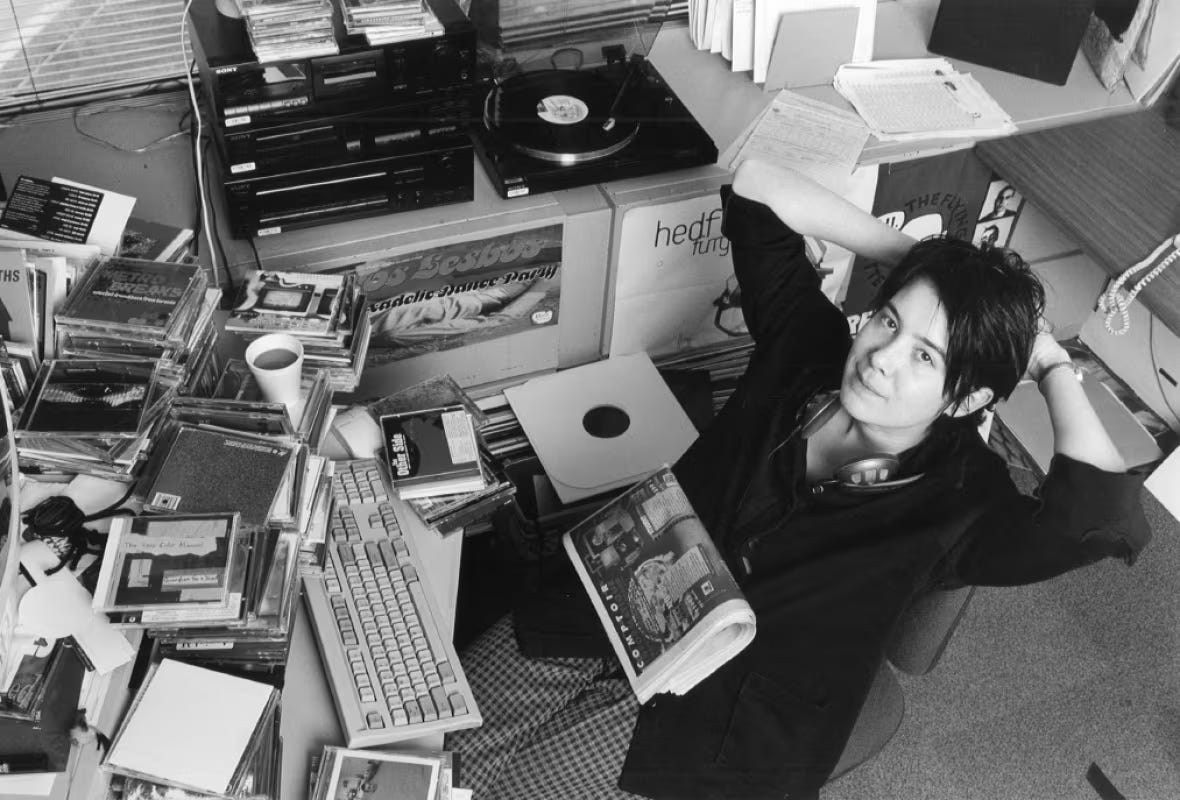February 6, 2024, marks the 40th anniversary of overnight show Brave New Waves debuting on the CBC.
I can all but guarantee you that no one at the CBC will acknowledge this on air. Which is fine: the show always thrived in the margins. That was the point.
Brave New Waves was on the air for 22 years. Five years ago, Brent Bambury, one of two hosts most associated with the program, wrote about the show for its 35th anniversary here. Bambury now hosts Day 6 on Saturday mornings. It’s a great piece, but the text does not mention his successor, Patti Schmidt, or the fact the show didn’t go off the air until 2007. (A photo of Schmidt was added after the piece’s initial publication.)
I worked on the show from 2003-06 under Schmidt, who served as both host and producer beginning in 1995. Getting her call to work on the show remains the biggest professional thrill of my life. This radio program changed me in immeasurable ways, and did so twice: first as a teenage listener, then as a professional.
I wrote about Brave New Waves’ first decade in Have Not Been the Same. That chapter in the co-authored book was mine; I wanted to make sure BNW took its place in history for busting open truly alternative culture in Canada, on a national radio platform.
It played music that was definitely too eclectic and/or out-there for any private station calling itself “alternative,” and often weirder even than what was heard on campus stations.
I can’t imagine such a program ever existing on the CBC today. For a whole bunch of reasons. Even with all the weirdos you can now regularly hear on the network’s flagship arts programs — there’s nothing like Brave New Waves was.
Yes, I’m a complete snob about it.
This video looks the way the show felt, certainly at the time I worked there:
When Have Not Been the Same was reissued in 2011, my co-authors and I did many new interviews to update material in the book. I called Patti to talk about the media landscape in the ’80s and ’90s, about Skinny Puppy and Shadowy Men, and to talk about how the show ended.
The dominant narrative of the show’s history — also implied in the initial edition of my book, which is set entirely during the Bambury years — was that its golden era was over by the time Patti took over in ’95. It became a different show that adapted with the times.
Some listeners changed with the show; many didn’t. Past a certain age, it’s hard to stay up all night listening to the radio. New generations arrived.
I called Patti again this week for an update to mark the anniversary, and to vet some older quotes that should remain between colleagues. Before the paywall kicks in below, here’s is a bit of what Patti said this week:
“Brave New Waves had a productive, not a passive audience. It wasn’t just company in the middle of the night. I know a lot of listeners who started labels, became promoters, became musicians, or joined the critical infrastructure that supports culture — both popular and at the margins. They joined other communities of practice because they found each other.
“It’s invaluable and immeasurable. There was never a qualitative survey that went out from the public broadcaster to see how the service was used, and how it manifests in people’s lives. I’m going to go out on a limb, and say that Brave New Waves did that more so than any other program: was there something more stimulating?
“I hesitate to dismiss [BNW] as ‘weird,’ but it was challenging to dominant narratives. It wasn’t just music for ‘music people.’ It was music for artistic imagination, and for permission to participate.
“That’s what was powerful and important about it.”
Amen (break).
If you miss her DJing, you can find her recent mixes here.
Patti Schmidt
August 4, 2010
Keep reading with a 7-day free trial
Subscribe to That Night in Toronto to keep reading this post and get 7 days of free access to the full post archives.



